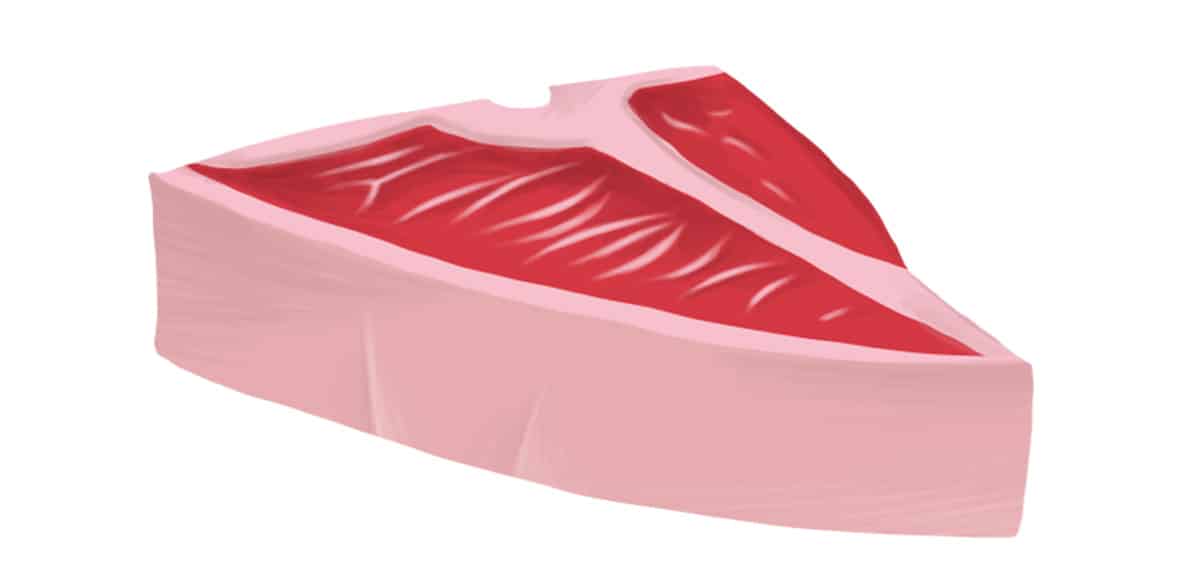Heart disease is stereotyped as a “man’s disease,” and actually for a long time even doctors thought women couldn’t get heart attacks. But that’s actually not true at all: heart disease is the #1 killer of women in the US, just like it’s the #1 killer of men.
Heart disease is also one of the major cases where Paleo advice and the standard nutritional line differ pretty drastically – although that’s slowly changing as everyone starts figuring out that blaming saturated fat and cholesterol is actually pretty silly.
But heart disease isn’t exactly the same in women as it is in men, and there are some female-specific things to be aware of.
- Compared to men, women have higher rates of coronary microvascular disease (plaque in small arteries in the heart, rather than the big ones).
- Women have higher rates of stress-induced cardiomyopathy (aka “broken heart syndrome”), when extreme psychological stress causes a scary but temporary failure in heart muscle.
Overall, there isn’t a huge amount of difference in theory. But in practice, differences in eating behavior, supplement use, and other diseases between men and women can raise some women-specific issues in heart health. Here’s a look at how the Paleo line on heart disease applies to women, with a focus on heart disease risk factors that primarily affect women like autoimmune diseases.
Paleo and Heart Disease: The Quick Version
The Food Pyramid “diet and heart disease” line has always been something like this: “saturated fat and cholesterol clog arteries, so eat a

high-carb diet full of whole grains.” And the typical Paleo response has always been: nope! Saturated fat doesn’t clog arteries and neither does cholesterol.
Instead of blaming saturated fat and cholesterol, it makes more sense to look at chronic inflammation, gut problems, chronic psychological stress (actually a really important factor – not surprising considering how dangerous stress can be!), and other factors. All of these things are connected to diet and lifestyle, but they aren’t caused by fat and cholesterol.
Now let’s take a look at how that plays out in women specifically.
Fat and Cholesterol Aren’t Any More Dangerous for Women Than Men.
In both sexes, it’s beneficial to eat almost any diet that isn't the typical American diet: Mediterranean diets, the DASH diet, and other whole-foods type diets all have benefits, and even the Paleo crowd can admit that switching from Cheetos and Coke to whole-wheat toast and lentil soup is going to be a relative improvement. Most of these whole-foods diets are also fairly low in fat, so they get headlines like “low-fat diet reduces heart disease.” But “low-junk” might be a better name than “low-fat.”
In a random sample of women, saturated fat in general is associated with heart disease, because it’s a dietary marker for junk food. But if you’re eating Paleo, you’re not getting your saturated fat from junk food.
This review looked at the strength of the evidence for different dietary factors in heart disease, and found that there was “insufficient evidence” for men or women to show that saturated fat actually was dangerous independent of junk food. For example, eggs, which are high in fat and cholesterol but not junk food, aren’t associated with any heart problems in women.
The review noted that almost no studies (and no randomized controlled trials) have investigated the role of saturated fat by itself, separate from other factors like more vegetables or various supplements. And the link between cholesterol and heart disease is so tenuous that they’ve even taken the cholesterol restriction out of the Dietary Guidelines in the latest version!
There’s very scant evidence that fat and cholesterol cause heart problems in women (or in anyone else) if they’re not coming from junk food.
About Carbs
This study of over 80,000 women found that eating a lower carbohydrate diet wasn’t associated with either increased or decreased risk of heart disease. A higher consumption of refined carbs (aka junk food) was associated with a higher risk, but carbohydrates from whole foods were fine and basically neutral on heart health. Another study has also found that refined carbs are associated with an increase in heart disease in women.
There are reasons why women specifically might want to choose or avoid a low-carb diet, but it doesn’t seem to have much effect either way for heart health. Sugar, on the other hand, is probably unhelpful. (This makes Coke’s red dress campaign for women and heart disease awareness sadly hilarious – sugar water is the absolute last thing that women should be drinking for their heart health!)
Dietary Issues in Heart Disease for Women Specifically
Calcium supplements.
Technically, anyone can take calcium supplements, but they count as a women’s issue because in practice they’re mostly prescribed to postmenopausal women to help prevent bone loss (osteoporosis) and fractures. Except that they don’t actually work very well to prevent bone loss, because bones are a lot more complicated than just putting more calcium into your mouth. And they may also come with an extra heart risk.
Some research suggests that calcium supplements may actually increase cardiovascular risk. It’s worth noting that other meta-analyses disagree, but considering that the supplements don't actually increase bone health, why risk it? You don't need calcium supplements to get enough calcium, even if you avoid dairy!
Autoimmune Disease, Gut Health, and Inflammation
Another diet-related problem affecting heart disease in women is autoimmune disease. Autoimmune diseases can strike both sexes, but they’re much more common in women. And they’re a big risk factor for heart disease.
- Women who have rheumatoid arthritis are at a higher risk of heart disease, stroke, and other death by heart disease. In fact, even joint pain without a technical diagnosis of rheumatoid arthritis was associated with a higher cardiovascular risk risk.
- Rheumatoid arthritis antibodies are independent risk factors for heart disease and cardiovascular events (e.g. stroke, heart attack).
The connection here is complicated. The short version is that autoimmune diseases probably add to the problems of inflammation and gut dysfunction, and ultimately the whole tangled mess of problems increases heart disease risk.
- One big link is the gut connection: we know that gut health has a significant effect on heart health, and autoimmune diseases often involve all kinds of gut problems, especially abnormal intestinal permeability (“leaky gut”).
- Another possible connection is inflammation. Autoimmune diseases are inflammatory, and inflammation is a huge factor in heart disease, especially coronary microvascular disease, which is the type that women tend to get more. There’s even some evidence that autoimmune-related inflammation specifically contributes to cardiovascular problems.
So what does this have to do with diet? Diet actually has a huge effect on autoimmune diseases, and not just the obviously food-related ones like celiac disease. And it can affect chronic inflammation and gut health. Just for example, gut irritants like gluten can cause gut problems that contribute to autoimmune thyroid disease, decrease gut health in general, and cause inflammation.
From this perspective, Paleo would actually be a really great diet for heart health in women, because avoiding inflammation and gut irritants is a huge emphasis. That’s why Paleo eliminates grains, legumes, industrial oils, and sugar. There’s nothing specific that you need to do for this – basic Paleo has it covered out of the box. For the curious, here’s more on diet and autoimmune disease.
Summing it Up

Heart disease in women is an important problem that needs more attention – there’s a persistent myth that women “don’t get heart attacks,” which is totally false. Heart disease in women looks a little different than it does in men, but there’s no solid evidence that saturated fat and cholesterol from whole foods cause heart disease in women any more than they do in men.
But there are some diet-related considerations for heart disease that mostly affect women, like calcium supplements and autoimmune diseases. The question of calcium supplements shows the potential for any supplement to have unwanted side effects: it's preferable to go for whole-foods nutrition whenever possible. Evidence from autoimmune diseases in particular just underlines the importance of an anti-inflammatory diet low in gut irritants for good heart health.





Leave a Reply